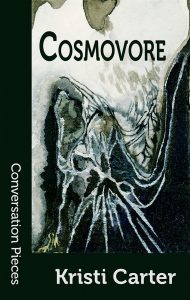The second speculative poetry project I’m launching for National Poetry Month here at Freethinking Ahead is the Speculative Poetic Justice Series.
What is Freethinking Ahead’s Speculative Poetic Justice series?
The Speculative Poetic Justice series takes a cue from John Scalzi’s “The Big Idea” and Mary Robinette Kowal’s “My Favorite Bit” and adds a twist. Posts in this series will feature poets on the social justice elements of their work.
The goals here are to:
- showcase upcoming and available speculative poetry collections,
- curate a searchable list of speculative poetry collections to highlight authors, and, similarly,
- create a hub for featuring presses and magazines that feature speculative poetry.
I’m also always on the lookout for poets and editors to interview for Speculative Poets in Conversation, and I anticipate an overlap in these series.
Who Can Participate?
Anyone who has a book-length work that contains speculative poetry (i.e., science fiction, fantasy, slip-stream, horror, weird, etc.) can request to participate. Here’s what I’m looking for:
- Full-length and chapbook-length works that are currently in print or forthcoming in the next three months.
- Books published by a press not owned or operated by the author. I am not accepting self-published works at present. (If you work for the press that published your book, however, I may make exceptions, depending on the history of the press; just send a quick query to the email address below.)
- Single-author and multiple-author books as well as anthologies or special theme issues of magazines.
Collections of multiple genres–short stories, poems, essays, etc.–are eligible, as long as the included poems touch on social justice issues.
Please do not send collections that contain graphic and/or needless violence, especially graphic sexual violence, and especially violence against children or animals. I’m not a horror reader for a reason, y’all. The topic is not off the table, of course, since poems that decry war, crimes, etc. are powerful statements against these things. But there’s a vast difference between useful mention of horror and gore for its own sake.
What Do Authors/Editors Need to Submit?
Just send an email to info at tdwalker dot net with the subject Speculative Poetic Justice Series Query: [Title], [Author] and include the following:
- A brief (250-1000 word) post on the social justice elements of your poems (i.e., How does your poetry address concerns about representation of women? How do the speakers of the poems work against type? Etc.)
- A brief bio (no more than 150 words)
- An ARC (ebook in .mobi format or a print copy). If you plan to send a print copy, just let me know in your email. I’ll reply back with a mailing address.
- An image of the work’s cover.
- Any social media links and websites for the author/editor and for the press (as applicable).
- If your book is forthcoming, please include the release date. If it’s already available, please indicate this.
Please note that submission to this series does not guarantee that your book will be featured on the blog.
When Will the Posts Appear?
Speculative Poetic Justice series posts will appear on all Wednesdays of the month that I have content available, except for the first Wednesday of the month. These Wednesdays are reserved for the monthly Speculative Poets in Conversation posts.
In your email, let me know if you’d like a particular date, and I’ll try to accommodate your request as I can.
Where Do I Get More Information?
Just send me a message at info at tdwalker dot net if you have any questions.


